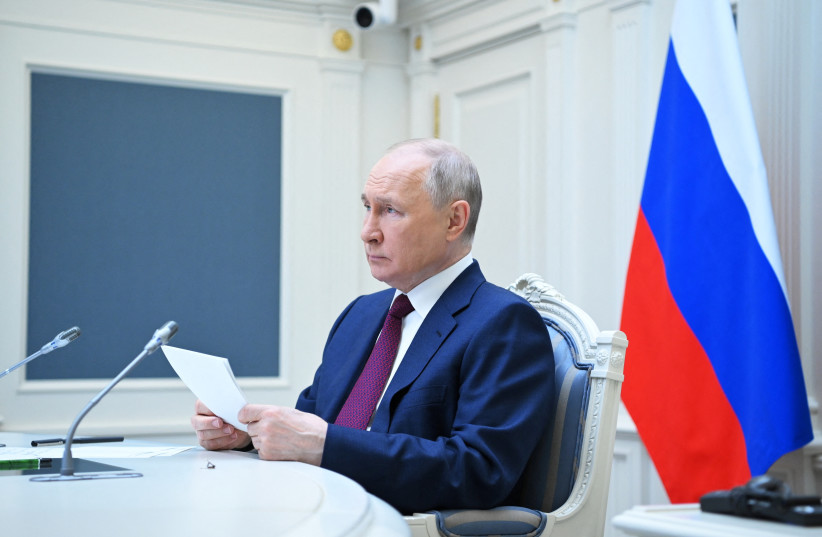The Kremlin accused NATO on Tuesday of treating Russia like an "enemy" and said it would closely follow any decisions taken at a two-day summit of the Western military alliance and respond with unspecified measures to protect its own security.
NATO Secretary-General Jens Stoltenberg said earlier he expected its leaders gathering in Vilnius to send a "positive message" to Ukraine about its path to eventual NATO membership.
Moscow has cited NATO's eastern expansion as a key factor in its decision to invade Ukraine nearly 17 months ago.
"Russia is perceived by them (NATO leaders) as an enemy, as an adversary. It is in this vein that the discussions (in Vilnius) will be conducted," Kremlin spokesman Dmitry Peskov told a regular news briefing.
"We are monitoring this very carefully because much of what has been said will be subject to in-depth analysis in order to take measures to ensure our own security," he added.

Foreign Minister Sergei Lavrov, in separate comments, said Moscow was taking "appropriate" measures in anticipation of NATO's further expansion. He did not elaborate.
NATO leaders at the summit in the Lithuanian capital are set to approve the alliance's first comprehensive plans since the end of the Cold War to defend against any attack by Moscow.
Diplomats also said differences were narrowing among the allies over Ukraine's push for NATO membership, although Kyiv will not be invited to join while war still rages on its territory.
'Very dangerous'
"Potentially, this issue (of Ukraine joining NATO) is very dangerous for European security... and therefore those who will make the decision must be aware of this," said Peskov.
He said European leaders did not seem to understand that moving NATO military infrastructure towards Russia's borders was a mistake.
Among a flurry of statements by senior Russian diplomats ahead of the Vilnius summit, Konstantin Gavrilov, a Vienna-based senior Russian security negotiator, accused the United States of fueling the conflict by pouring arms into Ukraine.
In an interview with Russia's RIA state news agency, Gavrilov said Europe would be the first to face "catastrophic consequences" if the war escalated further. He did not specify what those consequences would be.
Peskov said Sweden's expected accession to NATO would have "negative implications" for Russia's security and that Moscow would have to respond. Finland and Sweden both applied to join NATO last year after Russia's invasion of Ukraine, and Helsinki formally joined the alliance in April.
Sweden is now set to become NATO's 32nd member after Turkey dropped its opposition on the eve of the summit.
Peskov played down the Turkish move, saying Ankara had to meet its obligations as a NATO member. He added that Russia would continue to develop its relations with Turkey, which unlike its NATO allies has refused to impose economic sanctions on Moscow over the war in Ukraine.
